Could Your Pet's Drinking Water Be Making Them Sick?
In a hurry? Click here to read the Article Summary...
Most people don’t give filling up their pet’s water bowl much thought. But experts agree… if you wouldn’t drink the water, then your dog or cat (or pet bunny or hamster) shouldn’t either. Most municipal water supplies (i.e. water that comes directly out of the faucet) should be filtered before being consumed. Remember Flint, Michigan back in 2011? [1] That’s just the tip of the iceberg when it comes to water quality concerns.
Here is the latest on tap water quality issues as well as 5 tips to keep your furry friend hydrated… and healthy!
Some Info About Tap Water Safety
According to a comprehensive report [2] put out by alternative media outlet News21 (a project of the Carnegie-Knight Initiative on the Future of Journalism), a whopping 63 million people in the United States were exposed to unsafe water more than once over the last 10 years.
The survey investigated municipal water supplies, from rural neighborhoods to major metropolitan centers across the country.
Six decades of consumer dumping, farm pollution, industrial waste, pipe deterioration, and cutting corners have taken their toll. What’s more, journalists found that the average time it took municipalities of all sizes to fix known and hazardous drinking water pollution issues was roughly two years.
Especially slow to remedy water issues are smaller, low income municipalities who simply do not have the resources to fix the problem.
Pollution in tap water supplies is responsible for gastro-intestinal disorders, hormonal imbalances, neurological conditions (such as those caused by fluoride and chlorine), and a host of other disease conditions, including cancer [3].
The question for you as a pet owner is: If 63 million humans were exposed to polluted water and its side effects over the last 10 years, how many four-legged family members were affected as well? And at what cost?
5 Water Quality Tips for Pets (hint: they’re good for humans too!)
The quality of your pet’s drinking water truly has an impact on their health and well-being, as it does yours. Check out these five tips to get (and keep) them hydrated and healthy:
#1. Check your municipal water supply.
Get the low-down about your pet’s drinking water supply. Your local plant is federally regulated, but your state, county, city, or town may have their own rules regarding safety and treatment. Each plant is also required to publish a yearly “consumer confidence” report and, as a resident, you have the right to see it.
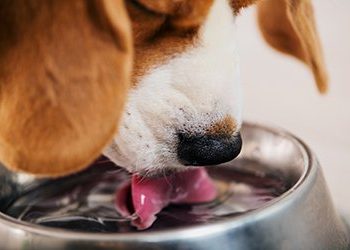
Give your local government agency a call to get a copy. Then check out which chemicals are being used to treat the water at the plant as well as what kinds of toxins may legally be added as it makes its way from the plant to you.
#2. Check the water in your home.
Next, gather information about the state of the water that comes directly out of your tap. The plant’s water quality may be vastly different from what makes it to your pet.
Old pipes, distance traveled, and other factors all can play a part in water quality. You can get a breakdown of what is in your and your pet’s water by purchasing a home water test kit or obtaining a free kit (if available) from your local water municipality.
The U.S. Environmental Protection Agency suggests sending your sample to a certified lab. You can call the EPA’s Safe Drinking Hotline at (800) 426-4791 for more information on how to do this [4]. Your local government office may have information about certified labs as well.
#3. Get a quality water filter for your home.
Odds are, after you see what is lurking in your drinking water, you will want to get a filter for your home. What kind is best for your whole family, including the four-legged members?
Consumer Reports states that the best filters are those which cater to your individual household’s needs. Most filters, even carafe-types, will filter out lead and chloroform. However, you may need a more advanced system, such as reverse osmosis, if your water supply contains fluoride, uranium, or other hard-to-remove toxins and pathogens.
Consumer Reports [5] suggests you make sure that your filter is labeled “NSF certified” for the particular substances you want removed. NSF stands for National Sanitation Foundation. It is the most recognized product testing and inspection organization in the United States and was founded in 1944 through the University of Michigan’s School of Public Health [6].
#4. Don’t use bottled water.
Bottled water is bad for the environment, bad for you, and bad for your pets.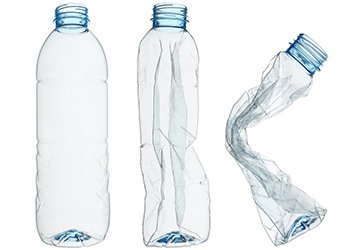 BPA, or Bisphenol A, is one of the nastiest toxins and it is present in abundance in most plastic water bottles.
BPA, or Bisphenol A, is one of the nastiest toxins and it is present in abundance in most plastic water bottles.
BPA is a known endocrine disruptor that can wreak havoc on mammalian hormone levels and cause hormone-related cancers [7].
A 2008 University of Cincinnati study [8] found that the temperatures to which the plastic is exposed makes much more of a difference than previously suspected. In fact, it may be the main factor in determining how much a chemical leeches into the water inside the bottle.
You may not put your water bottles in the sun or in a hot room, but who knows what conditions those bottles have been exposed to at the warehouse and en route to your grocery store. Say no to plastic water bottles – period!
#5. Stay away from hard water.
In addition to the chemicals found in tap water, it is also important to keep your pet away from long-term use of hard water. Water is “hard” when it has high levels of common minerals – usually magnesium and calcium.
According to a recent study conducted by the pet insurance company Trupanion [9], the presence of these minerals in your pet’s drinking water may lead to urinary issues such as urinary tract infections, cystitis, incontinence, and crystalluria in both cats and dogs.
The EPA defines “water hardness” as 64.8 milligrams of calcium carbonate to 1 U.S. gallon of water.
The safety of your pet’s drinking water is easy to determine. If it is harmful to people, then it is harmful to pets, plain and simple. Give your pet the best chance for a healthy, vital, and long life. Be sure there is plenty of pure, filtered water in his or her bowl!
Bonus tip:
Don’t feed your pets or give them water in plastic bowls which can leach harmful toxins. Glass, ceramic, or stainless steel are much healthier/safer options.
Organixx Cleanse & Detoxx is a two-step formula that provides a gentle yet powerful full-body detox using organic botanical ingredients. Supports naturally purging your body of toxins, chemicals, free radicals, heavy metals, waste, as well as bacteria, and pesticides. Easily cleanse your colon, liver, kidneys, lungs, and lymphatic system that may result in increased energy, and better digestion with more nutrient absorption, in addition to improved immunity, mental clarity, and overall health and wellbeing.
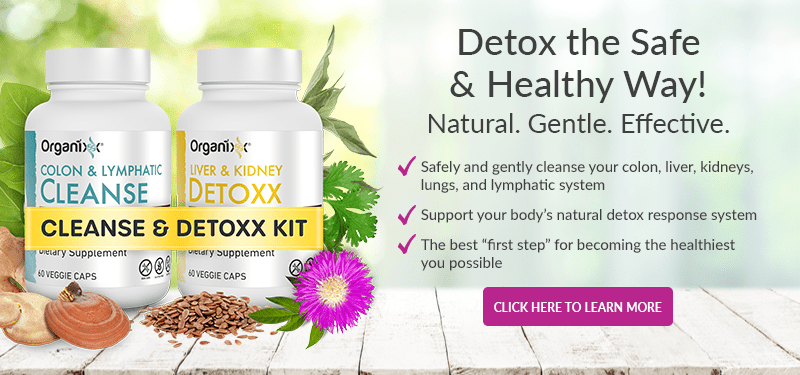
 Sources:
Sources:
Article Summary
Pollution in tap water supplies is responsible for a host of disease conditions, including cancer.
The quality of your pet’s drinking water truly has an impact on their health and wellbeing.
5 water quality tips for pets:
- Check your municipal water supply
- Check the water in your home
- Get a quality water filter for your home
- Don’t use bottled water
- Stay away from hard water

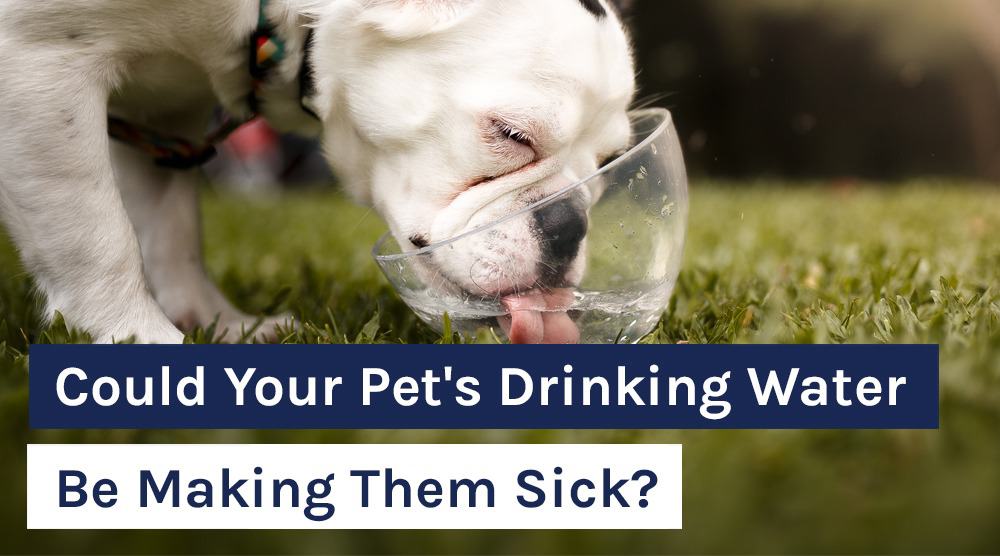
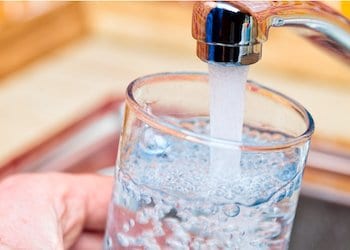


Hello I bought pet complexx however Indo not know how to use it.
Please advise.
Thank you
Hi Julienne! Pet Complexx is easy to use. Simply mix one scoop of the powder with your pet’s food -- wet or dry. Please see the label for the serving size for your pet. You can read more about our Pet Complexx here: https://shop.organixx.com/products/pet-complexx
My dog drinks reverse osmosis water and is 18 and is doing well
Great to hear about this Marcia!